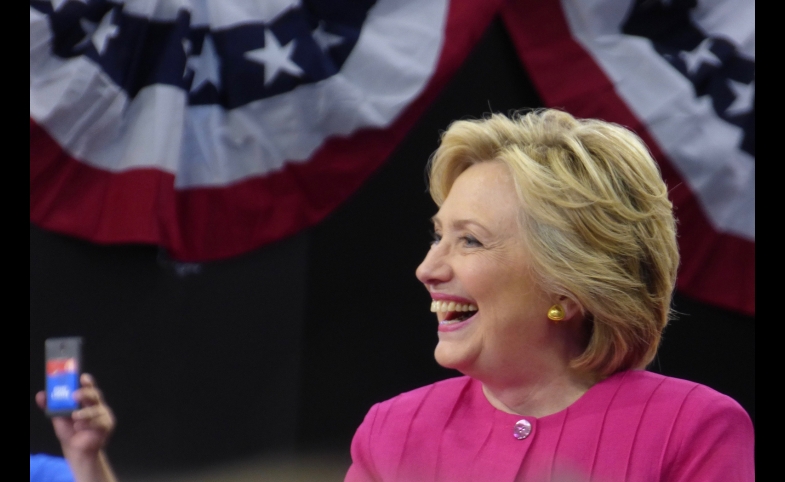Revelations about the 19,252 emails leaked by WikiLeaks on the eve of the Democratic National Conventions (DNC) in Philadelphia almost derailed the Convention and threatened to undermine the campaign of the Democratic...
KEEP READINGThe CPD Blog is intended to stimulate dialog among scholars and practitioners from around the world in the public diplomacy sphere. The opinions represented here are the authors' own and do not necessarily reflect CPD's views. For blogger guidelines, click here.

The Real Hillary Takes Over
With the Republican and Democratic conventions now finally behind us, one shudders to consider what mankind beyond our shores must make of America’s election spectacle so far.
The wild and disreputable allegations by Donald J. Trump against Mexicans, Muslims, Chinese — the list grows daily — and the doubts he has cast upon the NATO alliance as well as his pro-Putin statements, have shocked and worried America’s partners and allies.
These remarks are deservedly center stage in this year’s election drama.
The task last week in Philadelphia for Hillary Clinton and the Democratic Party was to look serious and sober-minded in contrast (not hard to do) and not to gloat at divisions within Republican ranks (much harder).
Hillary has her own image problems and there are another hundred days until the election — plenty of time for Russian hackers and international terrorists to change the momentum in Trump’s favor.
The Democratic National Convention last week made a few safe steps forward in repairing the Hillary brand. Speech after speech emphasized her remarkable personal story — while steering clear of the controversies surrounding the death of a valiant American ambassador in Libya, and the mishandling by Clinton of her own email correspondence.
From the remarks by ex-New York Mayor Michael Bloomberg (Hillary is “sane, competent,” not a “con man” like Trump), to Vice President Biden’s stirring testimonial, to the use of cultural figures and celebrities (e.g., the “fight song” video), the Democratic National Convention was a well-choreographed affair. President Obama’s rousing speech on Wednesday capped an extraordinarily well-presented argument for Hillary — served up mainly via its devastating attacks against Trump.
The most interesting thing is that, as with Barack Obama, much of the world has a more positive image of Hillary than do most Americans. Her situation invites comparison with that of Richard Nixon in 1968: well-known internationally but burdened by a U.S. public perception of untrustworthiness.
Still, after a quarter century of celebrity, Hillary is inseparable from her image. She has the self-conscious image of an over achiever who has done well, but who wants to control that image carefully. This has resulted in periodic questions as to whether the public sees an “authentic” figure or one only designed for public consumption. It also resulted in the disastrous decision to keep her government emails private — private to all, it turned out, but Russian government hackers.
Her acceptance speech on Thursday needed to project competence, seriousness, and moderation — and it did precisely that. Short on facts and oratory, it did nothing to take the focus away from Trump’s self-destruction — the first rule of election politics.
Although progressive figures like Michael Moore still think Trump may win, the “real” Hillary is on a roll.
The most interesting thing is that, as with Barack Obama, much of the world has a more positive image of Hillary than do most Americans. Her situation invites comparison with that of Richard Nixon in 1968: well-known internationally but burdened by a U.S. public perception of untrustworthiness.
So the Democratic National Convention’s conscious task last week was to first change the way many Americans view her. If they succeed, and Hillary wins in November, much of the world will breathe a sigh of relief that the “real” Hillary has bested the “real” Trump.
Photo by neverbutterfly | CC BY 2.0
Visit CPD's Online Library
Explore CPD's vast online database featuring the latest books, articles, speeches and information on international organizations dedicated to public diplomacy.
POPULAR ARTICLES
-
January 29
-
January 20
-
January 28
-
January 2
-
January 8
Join the Conversation
Interested in contributing to the CPD Blog? We welcome your posts. Read our guidelines and find out how you can submit blogs and photo essays >.













